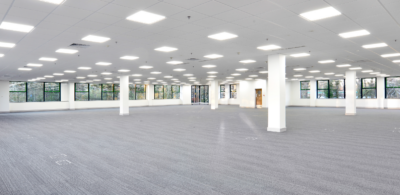As a professional talent acquisition manager with eight years of corporate hiring experience, I have interviewed candidates for both fashion and commercial real estate industries. In my career, I have found there is a common theme despite the industry — candidates want to align with a strong workplace culture.
Historically, talent acquisition has been responsible for finding out what motivates a candidate to join their company. Motivators include financial growth opportunities, extended learning or the ability to grow into management roles. Knowing these motivators alongside their core values is essential. If the core values of the candidate align with that of the employer, it will be a more successful placement, and knowing their personal motivators helps with alignment of expectations.
On the flipside, if the motivators and values of the candidate do not match the workplace culture, it can lead to high turnover, disgruntled employees and poor business morale. Similarly, if managers are not able to adapt to their employees’ strengths and understand what drives them, this causes disruption in the workplace for both parties.
How a candidate identifies a strong workplace culture is driven by their own experiences and expectations molded by their personal environment.
In the mid-2000s, the go-to pitch for a strong workplace culture was “work hard, play hard.”
As a mother of two small children, that pitch is not the ideal for me. What I hear from that pitch is: “employees are expected to burn the candle at both ends to fit into the company mold with extended work hours and an expectation to be social after-hours.”
However, to a more junior level candidate, possibly a recent graduate, they may find the above culture pitch appealing. When someone has less outside work obligations (children, elderly parents, etc.) it can be an important factor to have a social outlet in the workplace.
Candidates who have more financial responsibilities than a recent graduate, might identify a “strong workplace culture” as a competitive base salary, potential to grow, benefits, 401K, and the ability to work from home. Remember when working from home was such a foreign idea to employers?
Since the pandemic, the conversations (in CRE) have shifted to seeking “a company with a strong value system, who has a great reputation, cares about its employees, diversity and inclusion and fosters genuine business relationships above all else.” Brokers and employees alike are seeking to join firm’s like Colliers International that champion diversity and inclusion, act on their core value of “do the right thing.”
Colliers invests in their people from the pre to post hire. To ensure that the candidate’s strengths will be a value add to the team, Colliers uses the Predictive Index, EFPA-certified Global Behavioral Assessment tool to understand key motivators and work styles. Throughout an employee’s career lifecycle at Colliers, this tool is utilized to ensure employees can collaborate, play off each other’s strengths, and identify how to best support each other.
With 45 million Americans filing for unemployment since the outbreak, many will be shopping for what they consider “a strong workplace culture” in the next weeks or months to come. My advice to applicants is to identify what your key motivators and values are so you can find a company that aligns best.
“Do your pre-work” and request exploratory interviews with employees of companies you believe align with your own personal brand. Informational interviews show your interest, highlight your ability to be proactive and allow you to network without the pressure of being interviewed yourself. It will also confirm or debunk your perception of what it’s like to work for your company of choice.

 Colliers Insights Team
Colliers Insights Team

 Aaron Jodka
Aaron Jodka
 Andrew Steele
Andrew Steele

 Sheena Gohil
Sheena Gohil